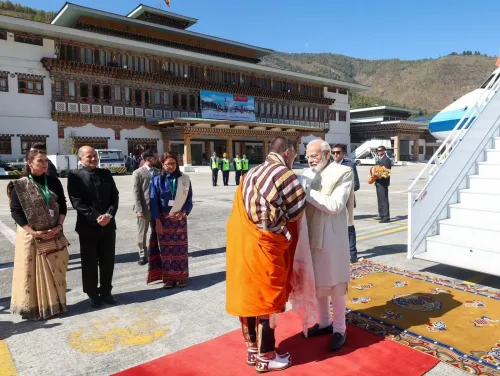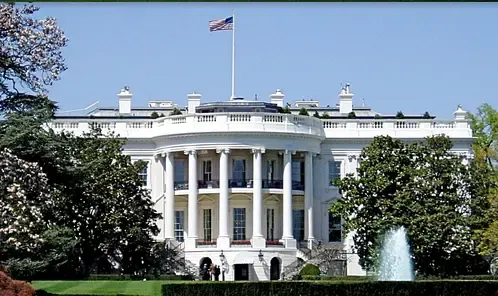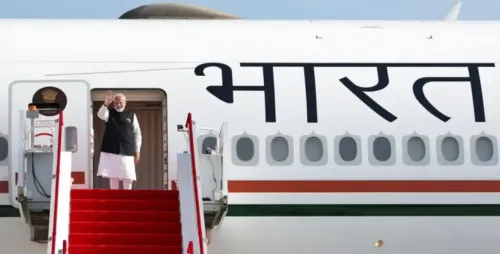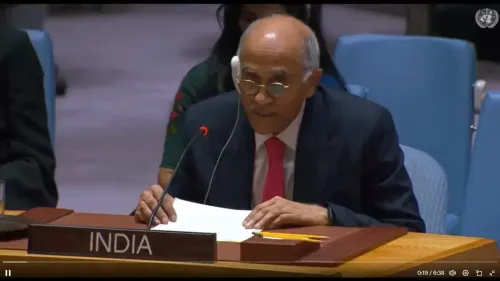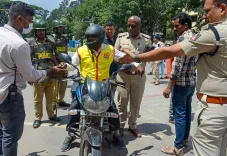How Are Residents of PoK Suffering Under Pakistan's Terror Agenda?
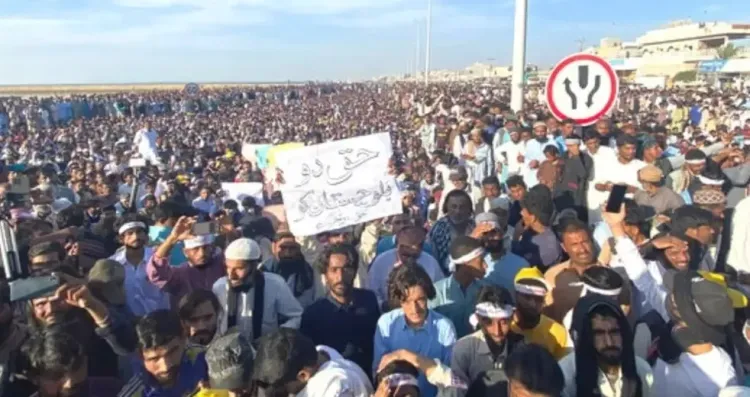
Synopsis
Key Takeaways
- Residents of PoK face significant suffering due to terrorism.
- Development initiatives in the region are severely hindered.
- The Pakistani state supports radical groups exploiting local vulnerabilities.
- Economic despair drives youth towards terrorism.
- International intervention is needed to address the crisis.
Sydney, Sep 24 (NationPress) In Pakistan-occupied Kashmir (PoK), residents endure profound human, economic, and psychological turmoil as this area remains one of the most affected by terrorism in South Asia. Recent discussions at the 60th Meeting of the United Nations Human Rights Council (UNHRC) in Geneva revealed the suffering of PoK residents stemming from the terror agenda of the Pakistan state, according to reports.
Although the population of PoK is a small fraction of the total Pakistani demographic, they disproportionately bear the brunt of terrorism, a reality that is increasingly recognized by international metrics and respected NGOs. The 2024 Global Terror Index (GTI) pointed out that over 90% of global terrorism-related fatalities occur in conflict zones. The people of PoK not only face direct terrorist threats but are also caught in the crossfire of state-led counterterrorism initiatives, as Paul Antonopoulos noted in the Greek City Times.
“Current international reports and publicly available data indicate that the region, rather than being a safe haven, is one of the most grievously affected by terrorism, suffering more intensely than many other parts of the subcontinent. Terrorism has fundamentally hindered developmental efforts in the region, relegating it to one of South Asia’s most impoverished areas. Ongoing violence and the constant threat of attacks have dissuaded foreign investment and international aid from launching significant infrastructure or economic initiatives, resulting in decaying infrastructure and a chronic lack of modern facilities,” the author stated.
“Initiatives aimed at promoting tourism, enhancing healthcare, and elevating educational standards have been repeatedly interrupted or completely halted, as militant activities and instability necessitate frequent pauses and divert public resources towards security instead of public welfare. The profits from whatever limited industry and tourism have emerged are siphoned off by companies associated with the Pakistan Army, leaving local inhabitants in dire straits,” the report further elaborated.
The relentless cycle of terrorism and instability has ravaged the fragile economy of PoK. Human Rights Watch and various reports have illustrated how ongoing unrest has deterred foreign investors, severely affected the tourism sector—once a promising industry due to the region’s natural allure—and disrupted livelihoods in agriculture and cross-border trade.
PoK has increasingly become a fertile ground for terrorist factions looking to capitalize on the political uncertainty and economic hardships of the area. The Pakistani state covertly supports and legitimizes radical groups and recruiters masquerading as civil society organizations, exploiting the poverty and vulnerability of local residents to recruit impressionable youth to advance their violent and extremist agenda.
“The government of Pakistan exploits the region as a launching pad for its expansionist ambitions, rather than prioritizing its development. The ongoing insecurity has a severe psychological impact, with epidemic rates of PTSD and anxiety reported among both children and adults, worsened by arbitrary detentions and disappearances targeting pro-reform activists or individuals suspected of cooperating with authorities. The climate of fear is perpetuated by both terrorist violence and the threat of military reprisals, fostering widespread resentment, alienation, and political disenfranchisement. The frustration of the populace and the anger of its youth are reaching a boiling point. They are actively protesting for their rights,” the report concluded.

